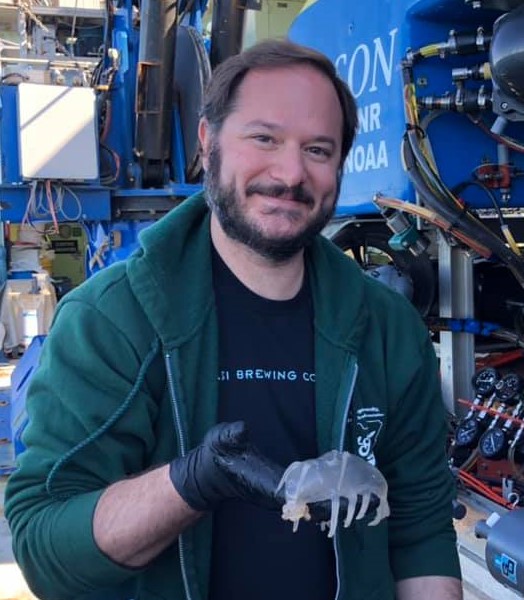Dr. Michael (Mike) Vardaro | UW OOI
Presenting: "Ocean Observatories: Open Access to the Open Ocean"
Hosted by the MLML Invertebrate Ecology Lab
MLML Seminar | November 19th, 2024 at 4pm (PDT)

Ocean Observatories: Open Access to the Open Ocean
Building on the legacy of ship-based oceanographic expeditions, recent technological progress has begun to transform many approaches to ocean research – a shift from expeditionary science to a permanent presence in the ocean. New developments in sensor design, computational speed, communications bandwidth, miniaturization, genomic analyses, high-definition imaging, robotics, and data assimilation, modeling, and visualization techniques continue to open new possibilities for remote scientific inquiry and discovery. One example of this approach is the National Science Foundation-funded Ocean Observatories Initiative (OOI), an integrated infrastructure program composed of science-driven platforms and sensor systems that measure physical, chemical, geological, and biological properties and processes from the sub-seafloor to the air-sea interface. The project is delivering real-time and near real-time open-access data within an expandable architecture that can incorporate emerging technical advances in ocean science over its 25-year-plus lifespan. The OOI network was designed to address specific science questions that will lead to a better understanding of our oceans, enhancing our capabilities to address critical issues such as climate change, ecosystem variability, ocean acidification, and carbon cycling.
Dr. Mike Vardaro
Research Scientist, University of Washington

